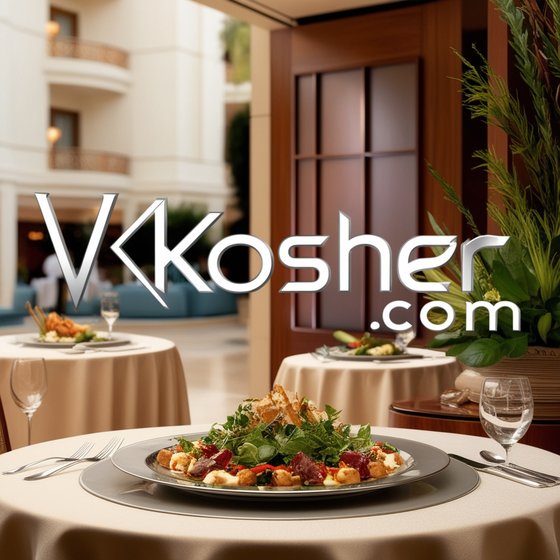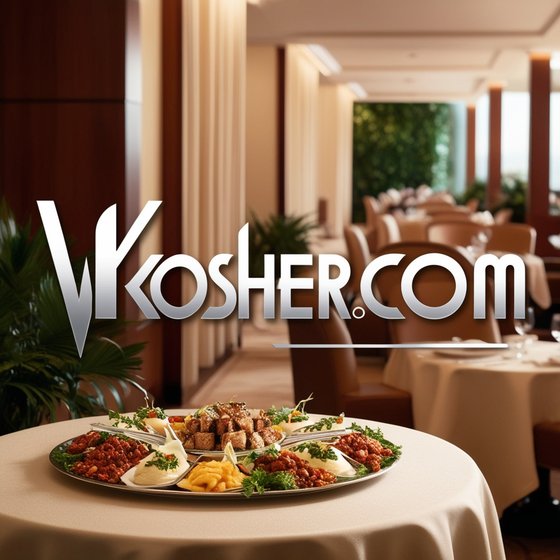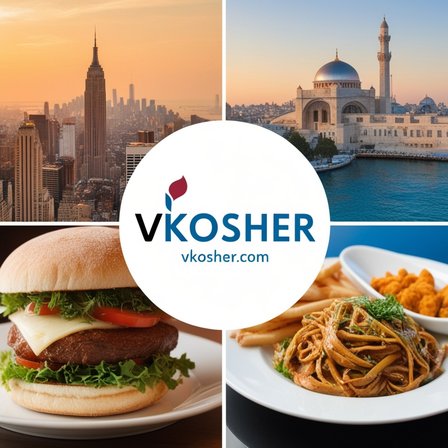Understanding Kosher Beef: A Guide to Quality and Tradition
Kosher beef is a term that encompasses not just the type of meat, but a comprehensive system of dietary laws, ethical considerations, and quality standards that have been followed for millennia by the Jewish community. These laws, known as Kashrut, define what foods are permissible (kosher) and how they must be prepared and consumed. Among the many types of kosher foods, beef holds a special place, often seen as a symbol of luxury, celebration, and tradition. This article explores the intricacies of kosher beef, from its religious significance to its culinary appeal, and why it is increasingly popular even outside the Jewish community.
The Religious Significance of Kosher Beef
The kosher laws have their roots in the Torah, the central reference of the religious Judaic tradition. According to these laws, for beef to be considered kosher, it must come from an animal that chews its cud and has split hooves. This includes cows and excludes animals like pigs or horses. The cow, a ruminant, is thus a primary source of kosher beef.
The process of making beef kosher doesn't stop at the selection of the animal. The animal must be slaughtered in a specific manner known as shechita, performed by a trained and certified individual called a shochet. The shochet uses a sharp knife to sever the trachea, esophagus, and main blood vessels in a single cut, which is believed to cause the animal the least amount of pain. This method is central to the kosher practice and reflects a deep concern for animal welfare that predates modern ethical standards.
The Importance of Blood Removal
One of the most distinctive aspects of kosher beef is the requirement to remove all blood from the meat, as the consumption of blood is strictly prohibited in kosher law. After the animal is slaughtered, the meat is soaked in water, salted, and then rinsed to draw out any remaining blood. This process is not just a ritual but also contributes to the unique taste and texture of kosher beef, making it different from non-kosher meat. The removal of blood also aligns with the kosher principle of ensuring cleanliness and purity in food preparation.
Kosher Certification: A Mark of Quality
Kosher beef is often associated with high standards of quality and ethical treatment of animals. This reputation is not unfounded. The kosher certification process is rigorous and includes regular inspections by rabbis or certified kosher inspectors. These inspections ensure that every step of the process, from the handling of the animals to the packaging of the meat, adheres to kosher laws. The kosher label on beef products is thus more than just a religious symbol; it is a guarantee of quality that many consumers trust.
The kosher certification also has a broader appeal, particularly among those concerned about the ethical treatment of animals and food safety. The thorough inspection process, combined with the ethical guidelines embedded in kosher laws, often results in meat that is perceived as cleaner and healthier. This has contributed to the growing demand for kosher beef outside the Jewish community, especially among consumers who prioritize food safety and quality.
The Culinary Appeal of Kosher Beef
Kosher beef is not just about following religious laws; it is also a culinary delight. The process of koshering, which includes soaking and salting the meat, can enhance its flavor and tenderness. Many chefs and home cooks appreciate the distinctive qualities of kosher beef, which can be used in a wide variety of dishes, from traditional Jewish recipes like brisket and cholent to modern gourmet creations.
The texture of kosher beef is often described as more tender and juicy, which can be attributed to the meticulous process of blood removal and the high standards of animal selection. The kosher method also typically avoids the use of additives and preservatives that are common in non-kosher meat, resulting in a more natural and robust flavor profile. This natural taste makes kosher beef a preferred choice for those who appreciate the authenticity and depth of flavor in their meat.
Kosher Beef in Modern Cuisine
In recent years, kosher beef has found its way into mainstream cuisine, far beyond its traditional Jewish roots. The growing popularity of kosher-style delis and restaurants, particularly in urban areas, has introduced a wider audience to the taste and quality of kosher beef. Dishes like pastrami on rye, corned beef sandwiches, and beef brisket have become iconic in American food culture, with kosher beef playing a central role.
Kosher beef is also making inroads into fine dining, where chefs are experimenting with kosher ingredients to create innovative dishes that respect traditional methods while appealing to contemporary tastes. The combination of tradition and modernity in kosher beef cuisine is a testament to its versatility and enduring appeal.
Ethical and Health Considerations
For many consumers, the decision to choose kosher beef goes beyond taste and tradition; it is also about ethical and health considerations. The kosher process is seen as more humane, with a focus on minimizing the suffering of animals. This aspect resonates with a growing number of consumers who are concerned about the ethical implications of their food choices.
Health-conscious consumers also find kosher beef appealing due to the rigorous standards of cleanliness and the absence of certain additives and preservatives. The kosher process ensures that the meat is handled with the utmost care, which can result in a product that is perceived as healthier and safer. Additionally, the requirement to remove all blood from the meat is seen as a way to reduce the risk of certain diseases, adding to the health benefits of kosher beef.
The Global Market for Kosher Beef
The demand for kosher beef is not limited to Jewish communities. In fact, the global market for kosher products has been growing steadily, driven by consumers who value the quality, ethical standards, and health benefits associated with kosher foods. This includes a diverse group of people, from those following halal diets (which share some similarities with kosher laws) to vegetarians and vegans who occasionally consume meat and prioritize ethical sourcing.
Kosher beef is now available in many parts of the world, from the United States and Europe to Asia and the Middle East. This global reach has led to a greater awareness and appreciation of kosher food, with kosher beef often seen as a premium product. The international market has also encouraged innovation in kosher beef production, with producers exploring new cuts, packaging, and distribution methods to meet the growing demand.
Challenges and Opportunities in Kosher Beef Production
Despite its popularity, kosher beef production faces several challenges. The kosher process is labor-intensive and requires specialized knowledge, which can lead to higher costs compared to non-kosher beef. This can make kosher beef more expensive, limiting its accessibility to a broader audience. Additionally, the availability of kosher-certified slaughterhouses and butchers can be limited in certain regions, affecting the supply chain.
However, these challenges also present opportunities for growth and innovation in the kosher beef industry. The increasing demand for ethically sourced and high-quality meat products has led to new investments in kosher beef production, with companies exploring ways to streamline the process while maintaining strict adherence to kosher laws. This includes advancements in technology, such as automated systems for inspection and certification, as well as the development of new markets and distribution channels.
The Future of Kosher Beef
The future of kosher beef looks promising, with continued growth expected in both traditional and non-traditional markets. As more consumers become aware of the benefits of kosher beef, from its ethical production methods to its unique taste and quality, the demand is likely to increase. This growth will likely spur further innovation in the industry, with new products, flavors, and culinary experiences emerging.
In addition to its growing popularity, kosher beef is also playing a role in broader discussions about food ethics, sustainability, and health. As consumers become more conscious of the impact of their food choices, kosher beef offers a model of responsible and thoughtful food production that aligns with these values. Whether enjoyed in a traditional Jewish dish or a modern gourmet creation, kosher beef is more than just a food; it is a reflection of a rich cultural heritage and a commitment to quality and integrity.
Conclusion: The Timeless Appeal of Kosher Beef
Kosher beef is a unique and treasured component of Jewish dietary laws, embodying a blend of religious significance, ethical considerations, and culinary excellence. Its growing appeal in the global market reflects a broader appreciation for the quality and integrity that kosher practices represent. Whether you are part of the Jewish community or simply a food enthusiast seeking the best in beef, kosher beef offers a timeless and unparalleled experience. Its continued evolution and innovation ensure that it will remain a beloved and respected choice for generations to come.




